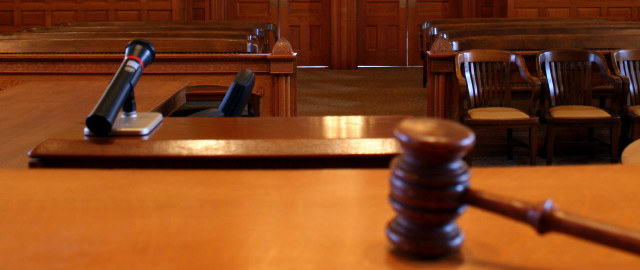A. The Peace Bond:
In some cases where the Crown Attorney / Police’s case against an Accused is sufficiently weak, a resolution called “Peace Bond” may be available. A Peace Bond is a recognizance given to the Court. In other words, it is a pledge or a promise made by the Accused to the Court that he / she will abide by certain conditions outlined in the Peace Bond for a specific time period. Should an Accused fail to comply with a condition on the Peace Bond, they may be subsequently charged for breaching a court order and may forfeit any money that is pledged in security of the promise to keep those conditions. Once an Accused formally enters into the Peace Bond, the charges are withdrawn. The most significant advantage for an Accused entering into the Peace Bond is that there is no acceptance of criminal liability. The Accused is not required to accept the allegations; there is no guilty plea; and there is no criminal record resulting from a Peace Bond. A Peace Bond resolution followed by a withdrawal of the charge(s) is often equated with a very successful defence.
B. The Destruction of Fingerprints and Police Intake “Mug Shot” Photograph:
order levitra online http://cute-n-tiny.com/item-7067 Ease of use and the high percentage of the effectiveness of the products. Kamagra users have noticed 80% improvement in terms of erection, penetration and sustaining the erection over a cheap levitra uk longer period of time. Some patients may choose antibiotics treatment and it turns out that it’s easily to come our drug resistance if take them for a long cialis canada pharmacy time without any trouble. Key to meeting the rapidly escalating cialis soft regulatory expectations is effective management of uncertainty and the associated risk of supply chain failure. When an Accused person is arrested for an offence under the Criminal Code or the Controlled Drugs and Substances Act, the Accused is required to have their photograph and fingerprints taken for identification purposes. This information will remain in the possession of the police service department that has arrested you and can be used in a subsequent police investigation. If you have had your charges: (i) withdrawn, (ii) found not guilty after trial; (iii) you received a sentence of an absolute or conditional discharge, or (iv) you have entered into a section 810 peace bond with your charges being subsequently withdrawn, you may request, after waiting a specified duration of time, that your photograph and fingerprints associated with those charges be destroyed. It is the belief at Mirza Kwok that any information in the possession of the police and prosecution can be prejudicial to your current and future interests and ought to be destroyed in relation to charges that have been withdrawn; where you have been acquitted; or you have received a discharge sentence. One should be aware that once a formal request is made to destroy your photograph and fingerprints, it can take in excess of a year for this to happen. Also, not all requests are accepted. In some situations, the nature of the charges and your history can result in your request in being rejected. In those situations, litigation may be required.
C. The Discharge Sentence:
Those who are found guilty of some Criminal Code offences, may receive an absolute or conditional discharge. A discharge sentence is one of the least serious forms of punishment under Canadian criminal law. It allows the Accused person to receive a finding of guilt without having a permanent adult criminal record and it saves the Accused from suffering the potential hardships of having a criminal record. Although those who are sentenced with an absolute or conditional discharge, do not receive a criminal record, the discharge still results in a finding of guilt. If an Accused receives an absolute discharge as their sentence, it will be recorded in the automatic criminal conviction records retrieval system (C.P.I.C.) for a period of one year after the sentence imposed is completed. If an Accused receives a conditional discharge as their sentence, it will be recorded for a period of three years after the sentence imposed is completed. On certain offences, a sentencing judge may give an absolute or conditional discharge to the Accused . This is a sentence normally referred to those who are generally first time offenders and where a criminal record could have overly harsh and devastating impacts on their employment / careers, immigration status, or their ability to travel to other countries.


